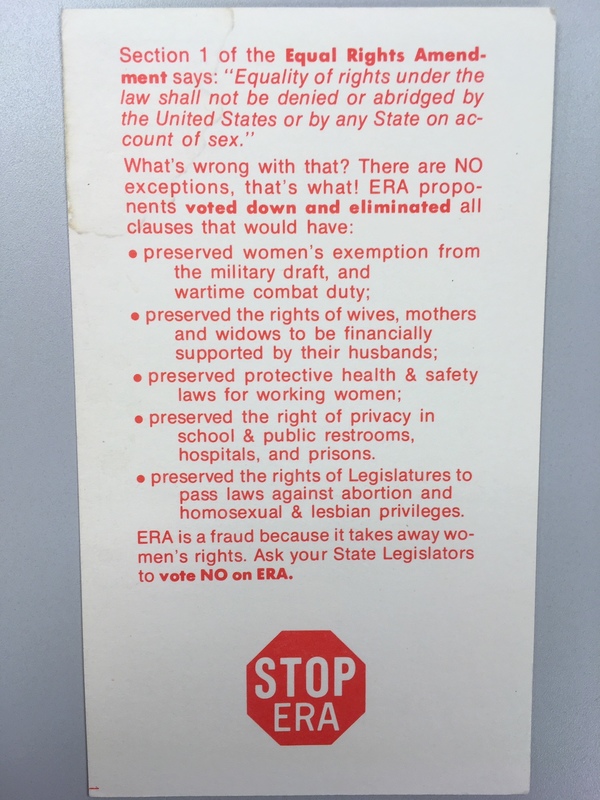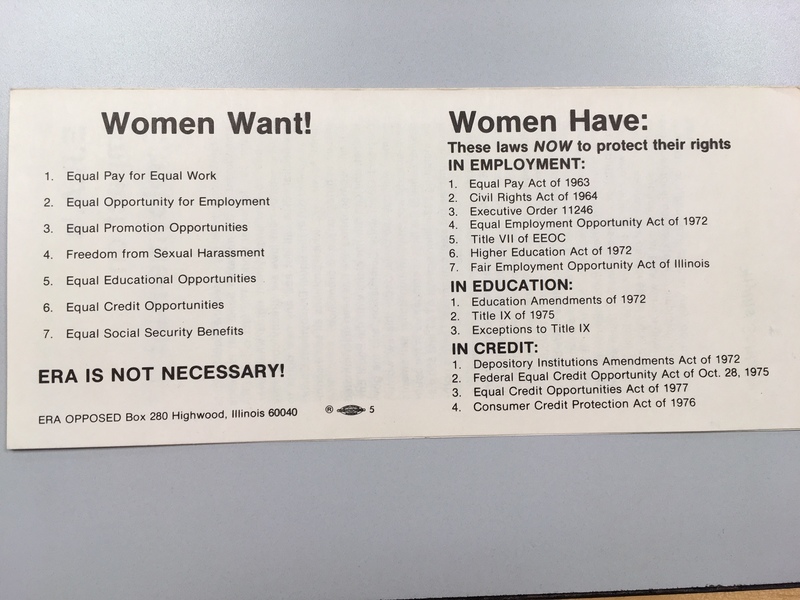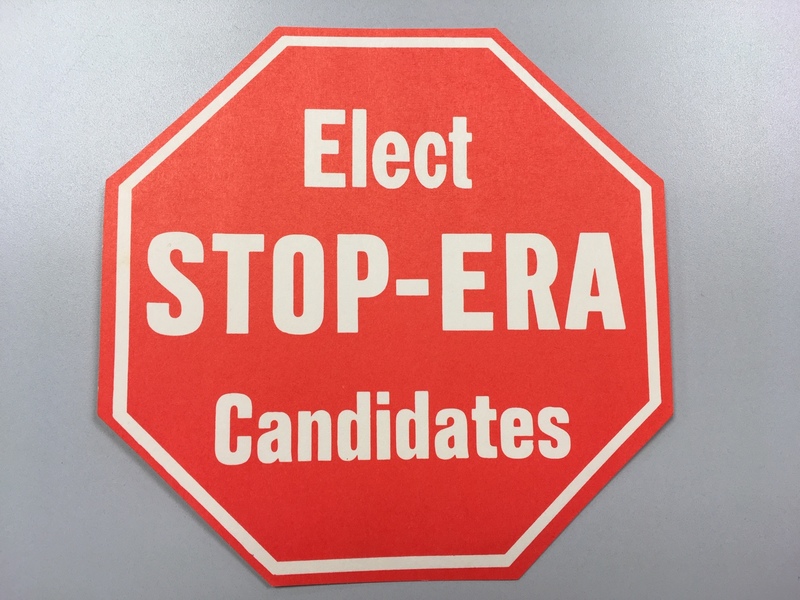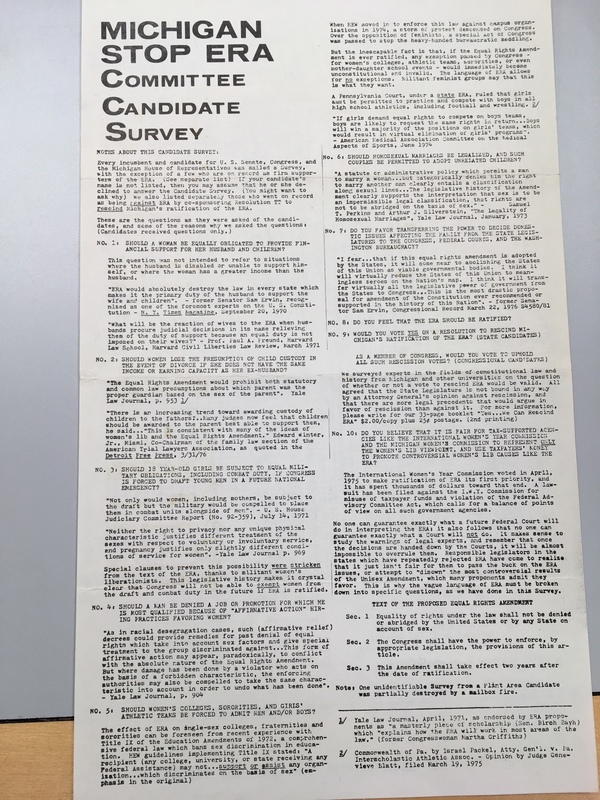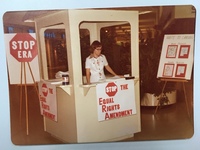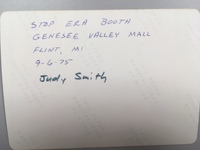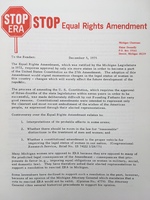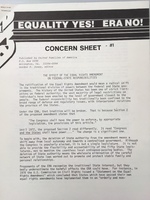Backlash: Michigan Stop ERA Campaign
Not all American women supported feminist and progressive causes during the 1960s and 1970s. A small but vocal minority of women campaigned against ratification of the Equal Rights Amendment (ERA). The ERA had first been introduced in the U.S. Congress in 1923, just a few years after the Nineteenth Amendment granted suffrage to women in the U.S. in 1920. The ERA finally received Congressional approval in 1972 (after being re-introduced by Martha Griffiths, Congresswoman from Michgan) and was sent to the states for ratification. Dozens of states ratified quickly. Then, however, mometum slowed as conservative women became increasingly vocal in their opposition (Schreiber, 2017).
The women who opposed the ERA insisted that women were fundamentally different from men, and they argued that the amendment would threaten women's traditional place in society and deprive them of rights they already enjoyed. The anti-ERA campaign was nationwide but also concentrated in particular states, since ratification required a super majority of states. The "Stop ERA" organization in Michigan campaigned against the amendment by educating voters, raising money, and supporting or opposing political candidates based on their attitude toward the ERA.
These cards illustrate the inherent tension in anti-ERA arguments. Opponents of the ERA sometimes emphasized that the amendment would take away protections that women enjoyed, forcing them to serve in the military for example. In fact, STOP stood for "Stop Taking Our Privileges" (Schreiber, 2017). At the same time, ERA opponents sometimes echoed feminist goals such as equal pay but argued that existing legislation was sufficient to guarantee women's rights.
Women who opposed the ERA used political strategies to make a case for women's traditional roles. The Michigan Stop ERA organization surveyed candidates for political office to determine their views on the Equal Rights Amendment. Then the group urged voters to support those candidates who opposed the ERA with signs like this.
In addition to the formal political process, conservative women used existing networks and gathering places to build their campaign (Rohlinger, 2017). Opponents of the ERA in Michigan engaged in face-to-face advocacy, as shown in this photograph of a booth they set up in the Genesse Valley mall in Flint in 1975.
The anti-ERA campaign included dynamic leaders such as Elaine Donnelly who led the Stop ERA organization in Michigan. She and others assembled a variety of arguments against it, including its possible legal and social implications.
Initially, the deadline for ratification of the ERA was 1979. Congress extended it to 1982, and efforts for and against continued. Confident that the Equal Rights Amendment would expire before the ratification deadline, the Stop ERA organization issued invitations to a "Prelude to Victory" party in 1982. Their prediction was correct: the ERA was not ratified and is not part of the Constitution today.
